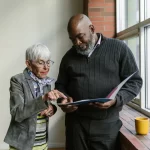As we age, maintaining cognitive health becomes increasingly important for preserving independence and quality of life. Cognitive training has emerged as a promising strategy to enhance mental sharpness and delay cognitive decline in seniors. Let’s explore how cognitive training can benefit older adults, backed by the latest research findings.
The Importance of Cognitive Training
Cognitive training involves structured activities designed to improve specific cognitive functions such as memory, attention, and problem-solving. As Dr. Chandramallika Basak from the University of Texas at Dallas explains, “Effective cognitive training during late adulthood can help maintain, or even enhance, our cognitive abilities.” This approach leverages the brain’s plasticity, allowing it to recover some abilities that naturally decline with age.
Latest Research Findings
Synergistic Effects of Exercise and Cognitive Training
A groundbreaking study conducted by researchers at Schulich Medicine & Dentistry and Lawson Health Research Institute found that combining aerobic-resistance exercises with computerized cognitive training significantly improves cognitive functions in older adults with Mild Cognitive Impairment (MCI). This combination was more effective than either intervention alone, highlighting the synergistic benefits of integrating physical and mental exercises.
Benefits Across the Board
Research from the University of Texas at Dallas supports the benefits of cognitive training for both healthy older adults and those with mild cognitive impairments. Dr. Basak’s meta-analysis revealed that participants who engaged in cognitive training outperformed control groups on post-training cognitive tests. This improvement was observed across various training modules, suggesting that even an aging brain can make positive changes.
Long-Term Impact
The Advanced Cognitive Training for Independent and Vital Elderly (ACTIVE) study demonstrated that brain training could help older adults maintain their independence by improving mental abilities. Although the improvements were modest, they contributed to better daily functioning and potentially delayed the onset of dementia.
Practical Tips for Cognitive Training
- Incorporate Physical Activity: Engage in regular aerobic-resistance exercises like walking or cycling to complement cognitive training efforts.
- Use Technology: Explore computer-based programs designed to enhance specific cognitive skills such as memory or attention.
- Stay Engaged: Participate in activities that challenge your brain, such as puzzles, learning a new language, or playing musical instruments.
- Consistency is Key: Regular practice is essential for reaping the benefits of cognitive training. Aim for consistent sessions each week.
- Seek Professional Guidance: Consider working with a professional who can tailor a cognitive training program to your specific needs and goals.
Conclusion
Cognitive training offers a valuable tool for seniors looking to maintain mental sharpness and independence. By combining mental exercises with physical activity, older adults can significantly enhance their cognitive functions and improve their quality of life. As research continues to evolve, these strategies hold promise for delaying cognitive decline and extending the brainspan to match our lifespan.
References
- Schulich Medicine & Dentistry – “New study finds exercise, cognitive training combo boosts mental sharpness in seniors”
- University of Texas at Dallas – “Researchers’ Analysis Confirms Effects of Cognitive Training for Older Adults”
- WebMD – “Brain Exercises: Can They Help Older Adults?”
- Western University News – “Study finds exercise, cognitive training combo boosts seniors’ mental sharpness”



